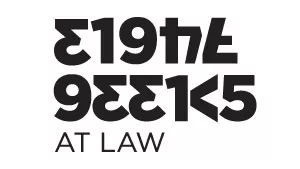- within Intellectual Property topic(s)
- within Intellectual Property topic(s)
- in Canada
- within Corporate/Commercial Law topic(s)
Introduction
The modern Olympic Games have been held every four years since its inception in 1896 and since 1994, have alternated between summer and winter Olympics within the four-year period (known as an Olympiad)1. The first Paralympics were held in 1960 and since 1988, have been held in the same city as the Olympics, a few weeks apart. The summer and winter Olympic Games were initially held in the same year, the first year of the Olympiad. However, since 1994 they have been held two years apart. The summer Olympics are held in the first year of the Olympiad and the winter Olympics in the third year.2 The summer 2024 Olympic Games were held in Paris, two centuries after the first Olympic Congress.3
With the Olympics come fierce competition, fiery passion, pride in one's nation, intoxicating opening ceremonies, tears, both joyful and sorrowful and plenteous sponsors. In a world where hashtags trend, where moments must always be captured and shared, where broadcasting and streaming rights are haggled over, what is the interplay between these epic games and intellectual property?
International Olympic Committee, Olympic Properties and their Protection
"Olympic Properties" is the general term used to refer to all the rights in the various Olympic flag, flame, torches, designations, music, identification, symbols, motto, anthem etc.4 These rights are owned by the International Olympic Committee (IOC).5 The IOC also owns all rights in the Olympic Games including advertising, marketing, broadcasting, displaying, reproducing, and authorizing the capture of still and moving images among others.6 The intellectual property (IP) owned by the IOC is expansive and keeps growing bigger with every Games held. It spans several types of IP including trademarks, designs and copyright. The Olympic Properties include: the Olympic and Paralympic symbols, the official trademarks for the Paris 2024 Games, the Olympic Phryge (mascot for Paris 2024), the official designations Olympic(s), Olympic Games, Olympian(s), Paralympics, the Olympic creed, Olympic flame and torches etc.7
Protection of the Olympic Properties usually starts about up to a decade before the event is hosted after the announcement of the winning bid for hosting. The national committees of the host city are given the right to exploit and protect the Olympic Properties in their country.8 Under the Operational Requirements for hosting the Olympic Games, host countries are required to enact comprehensive laws for the proper protection of the Olympic Properties.9 In addition to these special laws, Olympic Properties are protected by the general intellectual property laws of the host. The Olympic Symbol however enjoys special international protection under the 1981 Nairobi Treaty on the Protection of the Olympic Symbol. This treaty has about 55 members and Ghana is one of them.10
The IOC, national committees and organising committees of the Olympics work hand in hand to ensure the protection of the Olympic Properties. Protection ranges from strategic partnerships to enforcement actions. Nevertheless, there are numerous instances recorded over the years where the Olympic Properties have been infringed on. The issues surrounding the Olympic Properties are discussed further below.
ISSUES SURROUNDING OLYMPIC PROPERTIES
Due to the wealth of IP rights owned by the IOC and the nature and popularity of the Olympics (and Paralympics), the IOC is often faced with a diverse array of IP related issues that come up near and during the period of the Games. These include: trademark infringement, trademark squatting and cybersquatting, ambush marketing, counterfeiting, and illegal streaming.
Trademark Infringement
Trademark infringement refers to the use of a registered trademark, service mark, collective mark or certification mark without the consent or authorization of the mark holder in relation to the same or similar goods/services or in a manner likely to cause confusion.11 It extends to the use of a similar mark, not necessarily the same mark, in a manner which is likely to cause confusion, deception or mistake as to the origin of those goods/services.12 The Olympic Properties include several trademarks such as the Olympic Symbol (the five interlocking rings), designations such as Olympic(s), Olympian, Paralympics, the motto (Altius ,Citius, Fortius), Go(ing) for Gold etc. These trademarks are protected generally around the world under trademark laws. Some countries however (especially countries that have hosted or will host the Olympics) have specific laws that protect the Olympic Properties in their countries. Examples include the Ted Stevens Olympic and Amateur Sports Act of 1978 passed in the United States and the Olympic Symbol etc. (Protection) Act of 1995 and London Olympic Games and Paralympic Games of Act 2006 passed in the United Kingdom.
Additionally, as aforementioned, the Olympic Symbol is protected under a special international treaty. These laws prevent persons from using any registered Olympic marks or any marks that suggest an association with the Olympic Games, the IOC, or any of the national Olympic Committees without the authorization of the IOC. The IOC has several guidelines for the use of its Olympic Properties by accredited persons such as athletes, coaches, officials etc across all media. They restrict the kind of media athletes, coaches, sponsors etc. can post. For instance, in Paris 2024, athletes are not allowed to post video clips of their participation in their respective events exceeding a set length.13
Over the years there have been several instances of infringement of Olympic marks. These include:
- United States Olympic & Paralympic Committee (USOPC) v Prime Hydration, LLC (Prime)14: the USOPC sued Prime for using Olympic marks such as "Olympic"., "Olympian", "Going for Gold" and "Team USA" in their packaging, advertisement and promotions featuring Olympic athlete Kevin Durant without their consent or authorization. The case was eventually settled by the parties in January 2025; and
- S. Olympic Committee (USOC) v. Olympic Supply, Inc. (OSI)15: the USOC sued Olympic Supply Inc. for the use of the mark "Olympic News" for its retail shops being in the business of selling medical, janitorial, and industrial supplies. The court held that the use of "Olympic" in OSI's corporate name and the designation "Olympic News" were infringing and thus granted summary judgement in favour of the USOC.
Trademark Squatting and Cybersquatting
Trademark squatting refers to a situation where a person knowingly and fraudulently registers the trademark of another business which has no presence in their jurisdiction in order to take advantage of that absence.16 They sell these trademarks to the legitimate owners at exorbitant prices.17 It is usually common in countries that take the "first to file" approach in trademark protection. In the first to file approach, the trademark is granted to the first registration applicant even if another person can show prior use of that same mark.18 China is one of the many countries that use this approach and this may have led to the huge crackdown on Olympic trademark squatting in 2022. The China National Intellectual Property Administration (CNIPA) rejected over 400 trademark applications which attempted to trademark Olympic mascots and popular Chinese Olympic athlete, Eileen Gu.19
Similarly, cybersquatting (also known as domain squatting) refers to the abusive practice of registering and using an internet domain name that is identical or similar to trademarks, service marks, personal names or company names with the bad faith intent of hijacking traffic for financial profit, delivering malware payloads or stealing intellectual property.20Persons and businesses usually register domain names which relate to the Olympics after an announcement of host a city. For instance, a person may register a domain name including the word "Olympics" or phrases including the name of the host city and the year of hosting. There have been several instances of cybersquatting that have been pursued including the following:
- The London Organising Committee of the Olympic Games and Paralympic Games Ltd (LOCOG) v H&S Media Ltd (H&S)21: A World Intellectual Property Organization (WIPO) panel ordered H&S to transfer the domain name "mylondon2012" to LOCOG on the grounds that the domain name is confusingly similar to the registered trademark LONDON 2012 owned by LOCOG, that H&S has no legitimate interest in the name and that the name was registered in bad faith; and
- The announcement of the Brisbane hosting of the 2032 Olympic Games resulted in numerous attempts to register domain names containing the word "Olympics".22 This was announced by the Australian domain registry, "au Domain Administration".
Ambush Marketing
Ambush marketing refers to the purposeful false association by a company not sponsoring an event with the aim of deriving benefits similar to those afforded official sponsors.23 It is essentially an attempt to take advantage of a high-profile event (or even a team or individual) through marketing activity without the consent or permission or licence of the person, team or event organisers.24 Ambush marketing may be by association or intrusion. The former occurs where the ambusher associates itself with the event without authorisation and the latter occurs where the ambusher targets the "live audience" of the event through broadcasts, erecting signs or billboards, distributing souvenirs etc at or near the event area.25
The Olympics are one of the most popular sporting events globally thus, it is no wonder many businesses attempt to ride on their publicity for financial and other benefits. This is usually done by the use of Official Olympics hashtags or even registered marks without permission, purchasing advertising time around the Olympics showing times etc. Over its long life-span there have been several major instances of ambush marketing targeting the Olympics. These include:
- 1984 LA Olympics:Although Fujifilm was the official sponsor, its competitor Kodak sponsored the television broadcasts and the US track team, causing confusion as to which company was the official sponsor;
- 1996 Atlanta Olympics: Non-sponsor Nike bought up a substantial amount of billboard space around the venues and built a Nike Village next to the athletes' village;and
- 2000 Sydney Olympics: By using the slogan 'the spirit of Australia', airline Qantas upstaged the official sponsor Ansett Air. The slogan of the 2000 Olympics was 'Share the Spirit', misleading many into assuming Qantas was the official sponsor.26
Illegal Streaming
Illegal streaming refers to the act of watching or distributing copyrighted content without the proper authorization from the content owner. This can include movies, TV shows, music, sports events, and more.27
The IOC owns the copyright to the Olympic Games specifically the right to authorize the capturing of the Games, the rights in the registration of audio-visual recordings of the Olympic Games and the right to broadcast these registrations.28 The IOC licenses its broadcast rights to several media companies or networks. This grants the media companies the right to broadcast the Games (based on the terms of their grant) and profit from same. Illegal streaming however infringes on these rights and reduces the profits of these media companies which may affect eventually sponsorship of the Olympic Games. According to a study by Ampere Analysis, approximately USD 28 billion is lost globally topiracyeach year.29
Both the IOC and the accredited media companies are very vigilant in protecting these broadcast rights. Every year the Olympics are held, numerous streaming sites are blocked for streaming the Olympics illegally. An astounding number of take down notices are also issued each year of the Games. In 2016 for instance, about 1,300 take down notices were issued.30 For the 2024 Olympics, the IOC, the International Paralympics Committee (IPC) and the Organising Committee for the Olympic and Paralympic Games (OCOG) obtained an order from the Paris Judicial Court requiring Internet Service Providers in France to implement blocking measures to prevent viewers from accessing illegal streams of the Olympics.31
Counterfeiting
Counterfeit Olympic-branded merchandise is another of the IP infringements faced by the IOC and its national committees. Several sponsors as well as licensed fan gear manufacturers make Olympic merchandise and souvenirs each time the Games are held. Several companies produce counterfeit versions of these merchandise and sell them to the suspecting and unsuspecting public. The IOC partners with the World Customs Organization and has joined the European Commission's Memorandum of Understanding on the Sale of Counterfeit Goods on the Internet to combat counterfeit merchandise.32
Host countries typically carry the brunt of reducing the sale of counterfeit merchandise as a large portion of it would occur near the Games. In preparation for the Games, Paris officials shut down eleven (11) stores that were selling fake Olympic merchandise.33 About six hundred (600) counterfeit toys bearing the Paris 2024 brand were also seized by French officials in 2024.34
Conclusion
One of the major things that makes the Olympics possible is the revenue that comes from the use, license, grant etc. of the Olympic Properties. It is thus crucial for the IOC, its national committees and the world at large to ardently protect these Olympic Properties and ensure the continuance of centuries of passion, sportsmanship and pride. Although, there are arguments concerning the nature of protection granted to the Olympic Properties, it is only prudent for a robust regime to be enforced to ensure the continuity of the beloved Olympics.
Footnotes
1 Kalliopi Sakavitsi, The History of the Olympic Games accessed at https://olympics.com/en/news/the-history-of-the-olympic-games
2 Ibid.,
3 Ibid.,
4 Rule 7 paragraph 4 of the Olympic Charter
5 Rule 7 paragraph 1 of the Olympic Charter
6 Rule 7 paragraph 2 of the Olympic Charter
7 Ibid., note 1
8 Bye-laws to Rules 7-14 of the Olympic Charter
9 Olympic Host Contract – Operational Requirements — October 2022 (with addendum) pg. 203
11 Section 9 of the Trademarks Act, 2004 (Act 664)
12 Ibid.,
13 IOC Social and Digital Media Guidelines Paris 2024 accessed at https://olympics.com/athlete365/app/uploads/2023/12/IOC-Social-Media-Guidelines-Paris-2024-EN.pdf
14 Case No. 1:24-cv-02001-MDB accessed at https://fingfx.thomsonreuters.com/gfx/legaldocs/dwpkzljynvm/OLYMPICS%20TRADEMARK%20LAWSUIT%20complaint.pdf
15 U.S. Olympic Committee v. Olympic Supply, Inc., 655 F. Supp. 2d 599, (D. Md. 2009) accessed at https://casetext.com/case/us-olympic-committee-v-olympic-supply
16 Swapnil Agrawal, Swati Agrawal: "Trademark Squatting: A Growing Menace To Brand Owners" (Nov. 2023) accessed at https://www.mondaq.com/india/trademark/1388212/trademark-squatting-a-growing-menace-to-brand-owners
17 Ibid.,
18 https://www.baxterip.com.au/first-to-file-vs-first-to-use
19 Aaron Wininger, "China Cracks Down on Olympic Trademark Squatters Including Marks for Olympic Gold Medalist and Fashion Model Eileen Gu" (February 2022) accessed at https://www.chinaiplawupdate.com/2022/02/china-cracks-down-on-olympic-trademark-squatters-including-marks-for-olympic-gold-medalist-and-fashion-model-eileen-gu/
20 Bart Lenaerts-Bergmans, "An Introduction toCybersquatting" (Oct. 2023) accessed at https://www.crowdstrike.com/cybersecurity-101/threat-intelligence/cybersquatting/
21 Case D2010-0415, April 29 2010 accessed at https://www.wipo.int/amc/en/domains/decisions/text/2010/d2010-0415.html
22 https://www.auda.org.au/blog/au-reserved-names-why-cant-i-register-domain-name
23 Bayless, A., "Ambush marketing is becoming a popular event at Olympic games." The Wall Street Journal, p. 1. (1988, February 8).
24 Geraint Lloyd-Taylor et al., "Ambush Marketing and the Law: A look ahead to the Paris Olympic and Paralympic Games 2024" (Jan. 2024) accessed at https://www.lewissilkin.com/en/insights/ambush-marketing-and-the-law-a-look-ahead-to-the-paris-olympic-and-paralympic-games-2024
25 Ibid.,
26 Frouke Hekker, "Countdown to the 2024 Olympics: How to navigate the IP Game" accessed at https://www.novagraaf.com/en/insights/countdown-2024-olympics-how-navigate-ip-game
28 Rule 7 of the Olympic Charter
29 "Tackling Illegal Sports Streams" accessed at https://www.wipo.int/web/sports/broadcasting/illegal-streams
30 Todd Spangler, "Rio Olympics Piracy: Hyper-Vigilant IOC Blocks Illegal Live Streams — But How Big Is the Threat?" (Aug. 2016) accessed at https://variety.com/2016/digital/news/rio-olympics-piracy-live-streams-1201841050/
31 Andy Maxwell, "Pirate IPTV Services Blocked for Pirating The Olympics" (July 2024) accessed at https://torrentfreak.com/pirate-iptv-services-blocked-for-pirating-the-olympics-240728/
32 "IOC Puts Robust Anti-counterfeiting Efforts in Place to Protect Consumers and Maintain Athlete Support ahead of Paris 2024" accessed at https://olympics.com/ioc/news/ioc-puts-robust-anti-counterfeiting-efforts-in-place-to-protect-consumers-and-maintain-athlete-support-ahead-of-paris-2024
33 Helen Reid, Layli Foroudi and Mimosa Spencer, "In Olympics push, France ramps up war on fake fashion" accessed at https://www.reuters.com/world/europe/deja-vu-olympics-push-france-ramps-up-war-fakes-2024-07-09/
34 Press Release by the French Ministry of Economy, Finance and Industrial and Digital Sovereignty accessed at https://presse.economie.gouv.fr/thomas-cazenave-felicite-les-agents-de-la-dnred-pour-une-saisie-de-600-jouets-contrefaisants-la-marque-jeux-olympiques-paris-2024/#:~:text=1620%20%2D%20Thomas%20Cazenave%20f%C3%A9licite%20les,Jeux%20Olympiques%20Paris%202024%2Dpdf&text=La%20saisie%20de%20ces%20600,%C2%AB%20Jeux%20Olympiques%20Paris%202024%20%C2%BB
The content of this article is intended to provide a general guide to the subject matter. Specialist advice should be sought about your specific circumstances.



